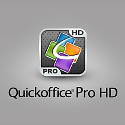Geek Software of the Week: DirectoryPass!
Since so much is in the news this week and last on security issues, I figured a security-based GSotW would be a good idea!
Let’s say that you run a web site hosted on a web server running Apache (how wise you are!) And, let’s say that you wanted to password protect a directory off your server via a .htaccess file. You could teach yourself to code the password into the file, or you could simply download and set up DirectoryPass!
“Features and Benefits
- Multi-Language Interface: English, French, German, Spanish, Italian, Portuguese, Japanese and Turkish interfaces all in one script.
- Multi-Platform Software
- Tested on Unix, Linux and Windows environments.
- Cross-Compatibility
- Supports Windows .htaccess, Cobalt RAQ .htaccess and traditional .htaccess methods.
- Simple Installation
- Upload one file (less than 50Kb) and configure via browser.
- Open Source
- Released under GNU General Public License. DirectoryPass is completely free!”
DirectoryPass also gives you a web-based screen to manage usernames and passwords to web directories as well. Very cool stuff!
 Iconic science fiction author, Ray Bradbury, is dead at the age of 91. He was born the same year as my father. I read his work as a kid. Wow.
Iconic science fiction author, Ray Bradbury, is dead at the age of 91. He was born the same year as my father. I read his work as a kid. Wow. QuickOffice is a simple, yet powerful office suite for mobile devices. Google has scooped them up in order to prepare for their “battle” to come with rival Microsoft once they start pushing Windows 8 on all devices.
QuickOffice is a simple, yet powerful office suite for mobile devices. Google has scooped them up in order to prepare for their “battle” to come with rival Microsoft once they start pushing Windows 8 on all devices.


